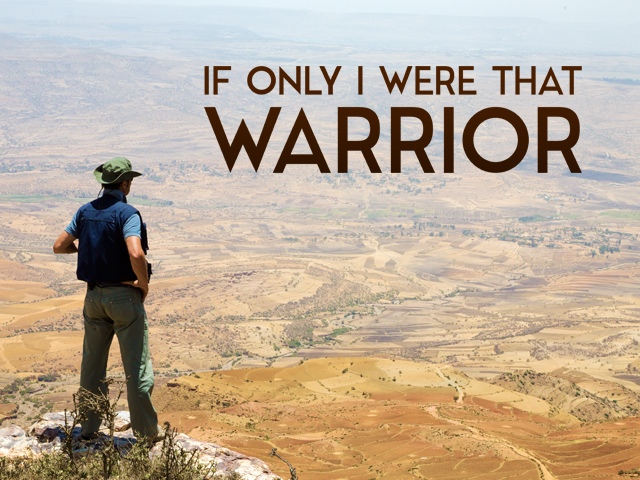 On Saturday, February 20th the Italian Cultural Center of Minneapolis & St. Paul presented If Only I Were That Warrior as part of their annual Italian Film Festival followed by a moderated discussion. In the film, director Valerio Ciriaci examines Italy’s brutal attempts to colonize Ethiopia in 1935 through the lens of the 2012 erection of a monument dedicated to Rodolfo Graziani. The monument, located in the Italian town of Affile, reignited the tense politics surrounding Graziani’s involvement in the Italian invasion of Ethiopia and its legacy today.
On Saturday, February 20th the Italian Cultural Center of Minneapolis & St. Paul presented If Only I Were That Warrior as part of their annual Italian Film Festival followed by a moderated discussion. In the film, director Valerio Ciriaci examines Italy’s brutal attempts to colonize Ethiopia in 1935 through the lens of the 2012 erection of a monument dedicated to Rodolfo Graziani. The monument, located in the Italian town of Affile, reignited the tense politics surrounding Graziani’s involvement in the Italian invasion of Ethiopia and its legacy today.
It has been more than 70 years since Japan’s 35-year formal occupation of the Korean peninsula ended, but issues of reparations and memory surrounding the crimes against humanity committed by the Japanese government during this time period are still contested. It is estimated that up to 200,000 women, mostly from Korea, were forced into sexual slavery during WWII. These young “comfort women” were abducted from their villages or persuaded to leave with the false promise of work, only to be imprisoned in comfort stations and sexually exploited by Japanese soldiers.
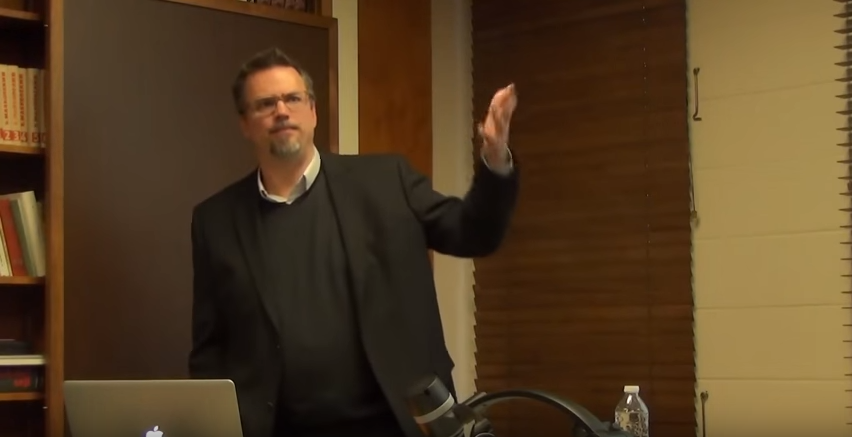 This is the second half of a two part interview with Dr. Adam Muller from the University of Manitoba. CHGS interviewed Dr. Muller after his November presentation on campus in which he highlighted the Embodying Empathy project, a collaborative project at the University of Manitoba that will bring Canada’s residential schools alive with an immersive digital experience.
This is the second half of a two part interview with Dr. Adam Muller from the University of Manitoba. CHGS interviewed Dr. Muller after his November presentation on campus in which he highlighted the Embodying Empathy project, a collaborative project at the University of Manitoba that will bring Canada’s residential schools alive with an immersive digital experience.
If you’d like to get caught up, you can find the first half of the interview here.
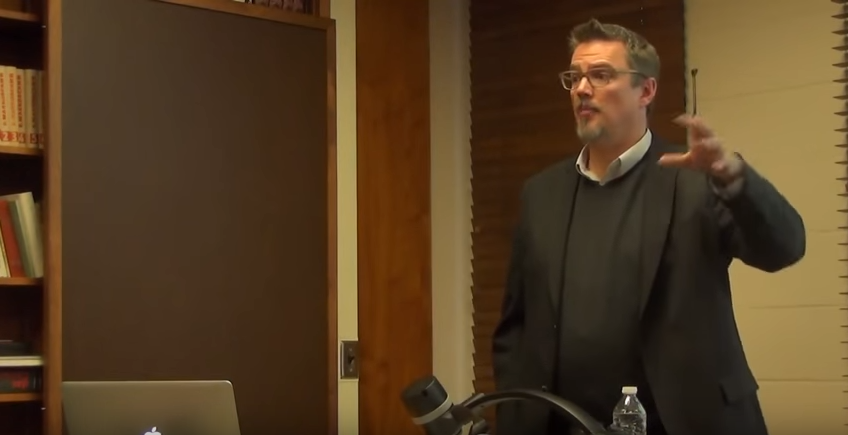 In November, the Center for Holocaust and Genocide Studies welcomed Dr. Adam Muller from the University of Manitoba to discuss his upcoming project, which creates a virtual First Nations residential school. Dr. Muller is part of the Embodying Empathy project, which seeks to create a digital immersive experience for educate visitors about the settler-colonial interactions at Canada’s residential schools. The project is also exploring whether immersive representations can bridge the empathetic distance separating victims from secondary witnesses to atrocity.
In November, the Center for Holocaust and Genocide Studies welcomed Dr. Adam Muller from the University of Manitoba to discuss his upcoming project, which creates a virtual First Nations residential school. Dr. Muller is part of the Embodying Empathy project, which seeks to create a digital immersive experience for educate visitors about the settler-colonial interactions at Canada’s residential schools. The project is also exploring whether immersive representations can bridge the empathetic distance separating victims from secondary witnesses to atrocity.
Dr. Muller is Associate Professor of English at the University of Manitoba (Canada). He specializes in the representations of war, genocide and mass violence, human rights, memory studies, critical theory, cultural studies, and analytic philosophy.
CHGS followed up with Dr. Muller to learn more about his innovative project. You can find a recording of the original presentation here. This is part 1 of our conversation.
CHGS is proud to maintain collections of art and historical objects that originated with founding director Stephen Feinstein’s work in Holocaust art. These collections include visual artworks, such as the paintings of Fritz Hirschberger, as well as historical objects, including postcards and badges from Nazi Germany.
CHGS has stewardship over these important pieces of history and artistic expression. Our goals are to care for these objects through best museum practices and extend their educational impact through physical and digital exhibition.
 We are collaborating with Deborah Boudewyns, UMN Art and Architecture Librarian, and instructor of a UMN course, Workshop in Art, in which students learn the skills of curating and exhibiting, using CHGS collections as the foundation of their work. These students will end the semester with an exhibition featuring CHGS art and objects, to be held in Wilson Library from April 29 – May 12, 2016, with an opening reception on April 29.
We are collaborating with Deborah Boudewyns, UMN Art and Architecture Librarian, and instructor of a UMN course, Workshop in Art, in which students learn the skills of curating and exhibiting, using CHGS collections as the foundation of their work. These students will end the semester with an exhibition featuring CHGS art and objects, to be held in Wilson Library from April 29 – May 12, 2016, with an opening reception on April 29.
In an effort to keep our art collections vital we have migrated the CHGS owned exhibitions to the University of Minnesota Archive.
Our website, which includes resources in the study of Holocaust visual history, is being updated. Our imagery and art research is in the process of being made available online through UMN digital archives, enabling greater functionality, flexibility, and reach. We are working with the University’s physical archives to document CHGS history as we near our 20th anniversary in 2017.
 In 1999 Joschka Fischer, Germany’s Foreign Minister and a member of the Green Party with strong pacifist roots, used the phrase “Never Again Auschwitz” to support German military intervention during the Kosovo crisis. In 2005, at the main ceremony to mark the 60th anniversary of the liberation of the Auschwitz camp, Russian President Vladimir Putin praised the Red Army for “liberating Europe” (an assertion that obviously did not resonate positively among Poles). In the summer of 2014 Turkish President Recep Erdoğan slammed Israel for betraying the memory of the Holocaust by “acting like Nazis” during the operation against Hamas in Gaza. At the same time Israeli Prime Minister Benjamin Netanyahu invoked the Holocaust to warn the world of a nuclear Iran.
In 1999 Joschka Fischer, Germany’s Foreign Minister and a member of the Green Party with strong pacifist roots, used the phrase “Never Again Auschwitz” to support German military intervention during the Kosovo crisis. In 2005, at the main ceremony to mark the 60th anniversary of the liberation of the Auschwitz camp, Russian President Vladimir Putin praised the Red Army for “liberating Europe” (an assertion that obviously did not resonate positively among Poles). In the summer of 2014 Turkish President Recep Erdoğan slammed Israel for betraying the memory of the Holocaust by “acting like Nazis” during the operation against Hamas in Gaza. At the same time Israeli Prime Minister Benjamin Netanyahu invoked the Holocaust to warn the world of a nuclear Iran.
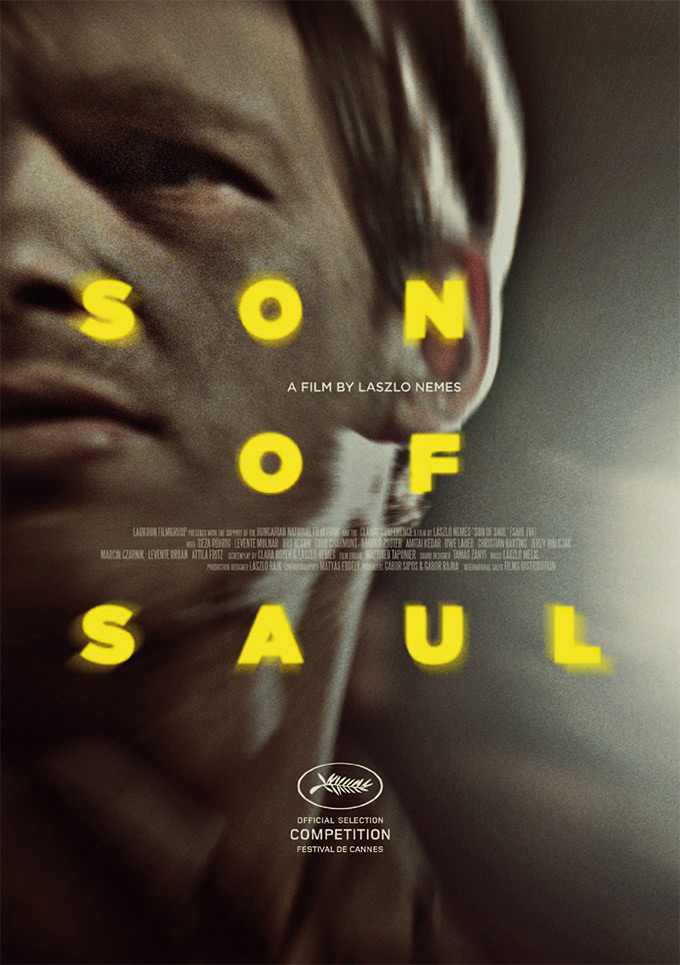 Son of Saul is a film about a member of the Sonderkommando (Jewish prisoners forced to aid in the killing process and clean up) at Auschwitz. What sets Son of Saul apart from most films that deal with the Holocaust is that it is not presented in a traditional narrative structure. Hungarian director László Nemes upon accepting his Golden Globe for Best Foreign Film said “over the years the Holocaust has become an abstract. It deserves a face.” Certainly he does this immediately as the camera never leaves Saul; we are either looking directly at his face in close-up or over his shoulder. We experience events with Saul as he goes about his work and later his self-imposed mission, the burial of a boy. The movie is a visceral experience — there is very little dialogue, and we only see and hear what Saul sees and hears. Nemes gives us very little to go on, we know nothing about Saul’s past, who he once was, prior to landing in Auschwitz. Saul is introduced to us as he emerges from a combination of mist, smoke and sound. We are immersed in a world that is out of focus and filled with a cacophony of sounds, some so sharp and real one turns to look for the offending speaker in the audience. Nemes and his sound designer Tamas Zanyi, recorded over eight different languages speaking dialogue to create aural chaos, these layers of sound combined with the close-ups and long takes are intended to disorientate, forming a psychological experience with Saul. Nemes does not use any sentiment or melodramatic devices to tell his story. We never form an emotional bond with Saul as one might to other characters in other films on the Holocaust.
Son of Saul is a film about a member of the Sonderkommando (Jewish prisoners forced to aid in the killing process and clean up) at Auschwitz. What sets Son of Saul apart from most films that deal with the Holocaust is that it is not presented in a traditional narrative structure. Hungarian director László Nemes upon accepting his Golden Globe for Best Foreign Film said “over the years the Holocaust has become an abstract. It deserves a face.” Certainly he does this immediately as the camera never leaves Saul; we are either looking directly at his face in close-up or over his shoulder. We experience events with Saul as he goes about his work and later his self-imposed mission, the burial of a boy. The movie is a visceral experience — there is very little dialogue, and we only see and hear what Saul sees and hears. Nemes gives us very little to go on, we know nothing about Saul’s past, who he once was, prior to landing in Auschwitz. Saul is introduced to us as he emerges from a combination of mist, smoke and sound. We are immersed in a world that is out of focus and filled with a cacophony of sounds, some so sharp and real one turns to look for the offending speaker in the audience. Nemes and his sound designer Tamas Zanyi, recorded over eight different languages speaking dialogue to create aural chaos, these layers of sound combined with the close-ups and long takes are intended to disorientate, forming a psychological experience with Saul. Nemes does not use any sentiment or melodramatic devices to tell his story. We never form an emotional bond with Saul as one might to other characters in other films on the Holocaust.
more...
I began working with CHGS just over a year ago, a newbie to Holocaust and genocide studies. It was an intense start, landing right into the fray of final preparations and coordination of the Bearing Witness event. As you may recall, this event fell on the eve of Holocaust Remembrance Day last year, and was an exhibition of portraits of and recorded interviews with MN Holocaust survivors, followed by discussion with the artist, Felix de la Concha, and talk by Auschwitz survivor, Dora Zaidenweber. Following close on the heels of Bearing Witness, just a few days later, was the panel eventorganized in response to what were then the very recent attacks in Paris at the offices of Charlie Hebdo.
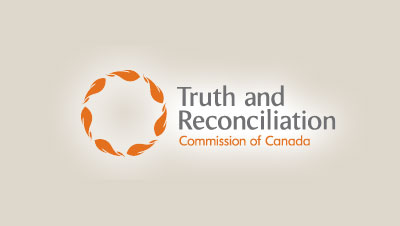 On December 15th, the Canadian Truth and Reconciliation Commission issued its final report. It documents the treatment of indigenous children in Canadian residential schools over the course of more than twelve decades. More 150,000 youth were sent to the schools. The report estimates that more than 3,200 never came home. In June, Beverly McLachlin, chair of the TRC commission, labelled the residential schools cultural genocide.
On December 15th, the Canadian Truth and Reconciliation Commission issued its final report. It documents the treatment of indigenous children in Canadian residential schools over the course of more than twelve decades. More 150,000 youth were sent to the schools. The report estimates that more than 3,200 never came home. In June, Beverly McLachlin, chair of the TRC commission, labelled the residential schools cultural genocide.
To many, the report and its finding are an astounding admission to the culpable role the Canadian government played in the destruction of several generations of indigenous culture. The release of the report raises an interesting question: can this be a positive sign of Canada coming to grips with its troubling past?
This year, the University of Minnesota will be hosting Sam Grey, a Fulbright Scholar from Canada. Sam comes to campus to continue her research in the field of reconciliation, specifically in settler-colonial states. While in Minnesota, Sam will be exploring the resistance to reconciliation in Minnesota a century and a half after the Dakota conflict of 1862. more...
